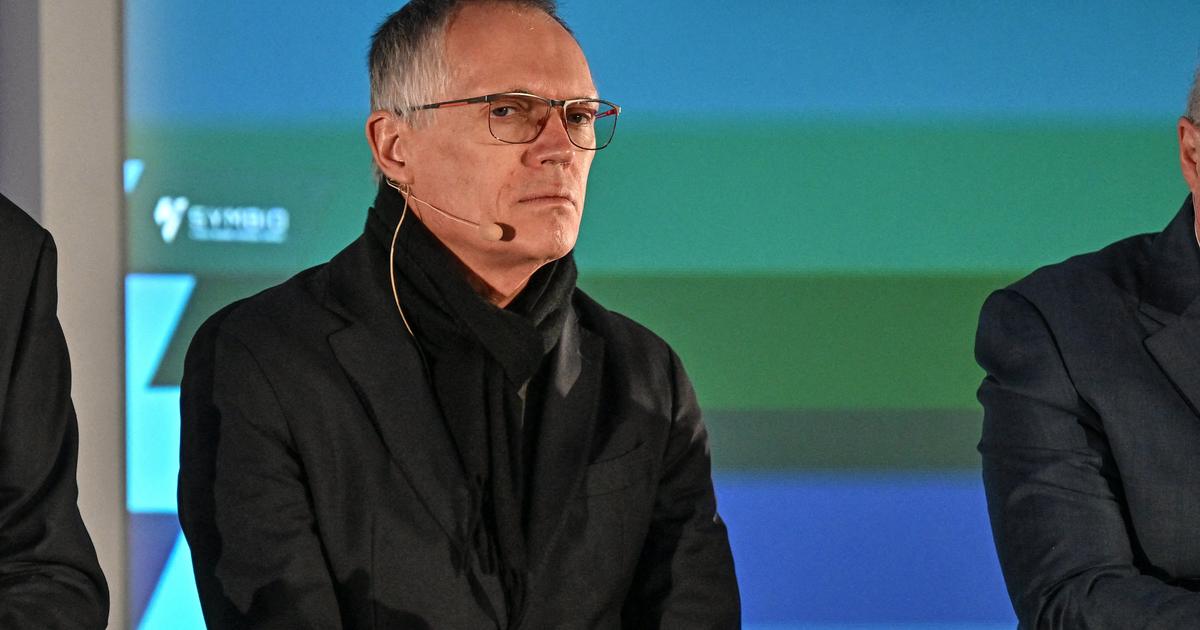When the mega-ship
Ever Given
ran aground in late March south of the Suez Canal, blocking a crucial artery of global shipping, the episode served as a reminder of Egypt's strategic position in the world.
Over time, and with greater discretion, this privileged location between Europe, Asia and Africa has also allowed the country to consolidate itself as another fundamental node on a planetary scale, which some come to compare in importance to the waterway: internet traffic.
The numbers, more and more, seem to strengthen the parallelism.
According to the Egyptian Minister of Communications and Information Technology, Amr Talaat, more than 80% of Internet traffic flows through his country between Europe and Asia.
Egypt is also the second country in the world with the highest number of submarine fiber optic cables, 17, only behind the United States.
And in 2020, Telecom Egypt (TE), the Egyptian state telecommunications company, received about 240 million euros for this concept, according to the report of its results in fiscal year 2020.
More information
The underwater network that keeps the world connected
Keeping papyrus alive in Egypt, despite the pandemic
"Egypt is Asia and the Middle East's main link to Europe, and it is also East Africa's main link to Europe," explains Alan Mauldin, Research Director at TeleGeography, a research and consulting company in the industry. telecommunications.
"In the last ten years, it has only gotten stronger," he adds.
The vast majority of the world's internet and telecommunications traffic travels through a complex network of submarine cables that connect land stations, so Egypt, due to its geographical position, is the shortest and most efficient route between Europe, Asia and Africa.
Although large international operators such as Vodafone are present, the key player in the sector is TE, one of the main submarine cable operators in the region.
The company owns 10 of the previous 17 submarine cables, provides cable landing services to the rest, and in recent years has opted to buy stakes in more cables and join the construction of two new ones.
It has also established new landing points and crossing routes, and has developed its capabilities and its network to be more reliable and accommodate an ever-growing demand.
"A strategic geographic position and a strong, well-developed infrastructure are both fundamental pillars," says Mariam Wael, a telecommunications analyst at financial investment firm Pharos Holding and a reference analyst at TE.
The Egyptian authorities, fully aware of these advantages, have successfully capitalized on their position. But the rest of the actors in the sector have been encouraged to explore alternative routes for three fundamental reasons: the recent normalization of relations between countries in the region, the risks that excessive dependence on a single country entails, and the high transit rates charged by TE . This increased competition, for now, does not challenge Egyptian dominance.
The case that has attracted the most attention so far is Google's plans to establish an underwater fiber optic cable, called Blue-Raman, to connect Italy with India through Israel and bypassing Egypt, according to
The Wall Street Journal,
citing sources. familiar with the studies. For now, there is no confirmation that the project will materialize, which trusts its fate that the ties between Israel and the rest of the countries in the region will continue to strengthen. And although the cable would not substantially affect Egypt either, the possibility has been interpreted as a reflection of the desire of big players like Google to search for alternatives.
“The importance of the cables that cross Egypt for telecommunications or internet is the same as that of the Suez Canal for ships. Egypt is a potential risk if a cable breaks, and that is why the telecommunications sectors are trying to find new routes, "says Winston Qiu, founder and editor of
Submarine Cable Networks
, a portal specialized in submarine cables. "On the other hand, TE charges quite high prices for the cables that cross Egypt," adds Qiu, noting that, apart from land routes through the Middle East, there are others with competitors in Central Asia and Russia. Also Morocco, due to its proximity to Europe, competes with Egypt for the African part.
Faced with this challenge, Egypt has not stood idly by. In January, TE signed an agreement with Google to provide it with increased capacity on a submarine cable and increase the reliability of its international traffic. In March, the company announced with pomp the brand name of an ambitious submarine cable system that will encircle Africa and connect with Europe by 2023, HARP. To do this, it will use infrastructure in which it has been assured to participate, including the submarine cable 2Africa, the longest built in the last 20 years. That same month, TE still had time to announce another route for fiber optic cables, between the Red Sea and the Mediterranean.
"There is no doubt that there is interest in creating various routes, and there is a need for it, [but] it should not be seen as a threat to Egypt," Mauldin believes. "It should not be seen as a zero-sum game, with alternative routes that are going to win and Egypt that is going to lose: that is not going to happen," he concludes.









/cloudfront-eu-central-1.images.arcpublishing.com/prisa/DIAGMBIFCBFTJADD5SB7GXXY2A.jpg)




